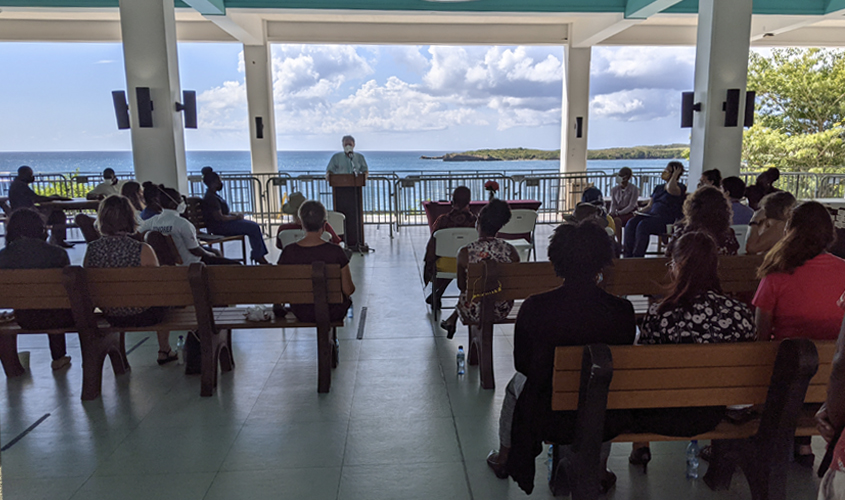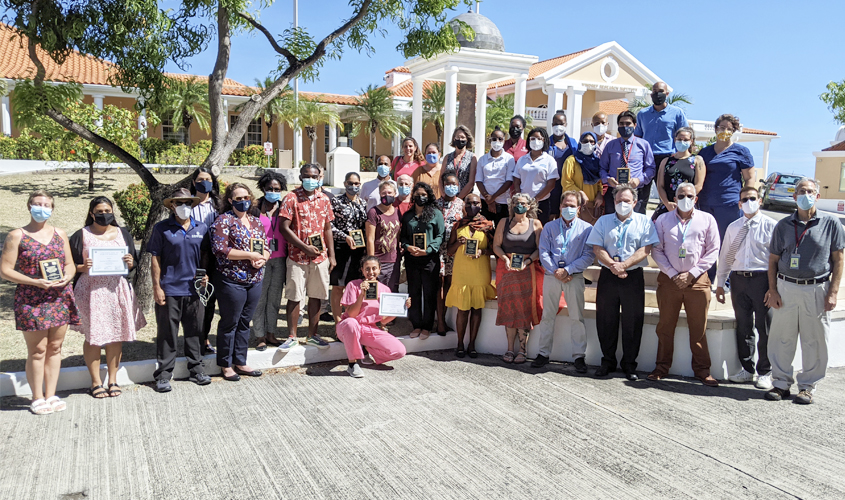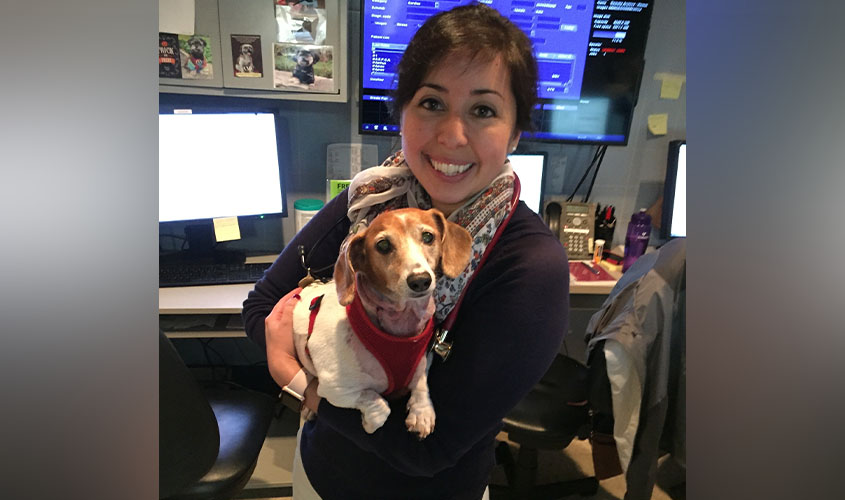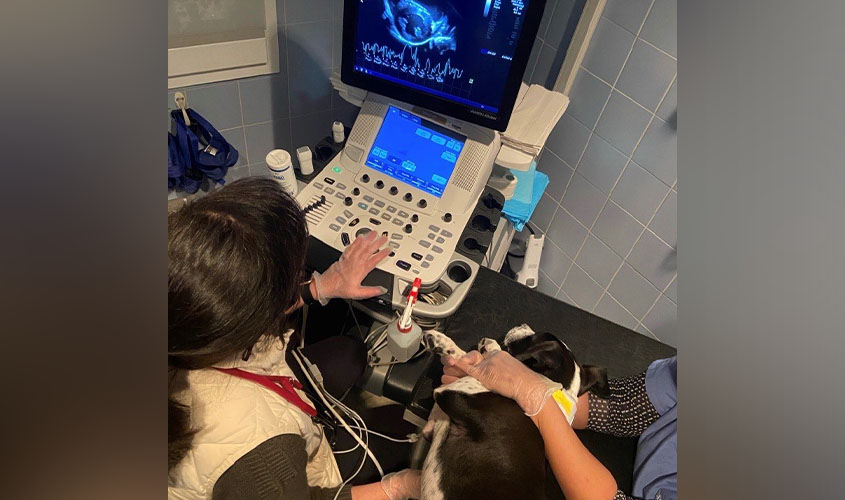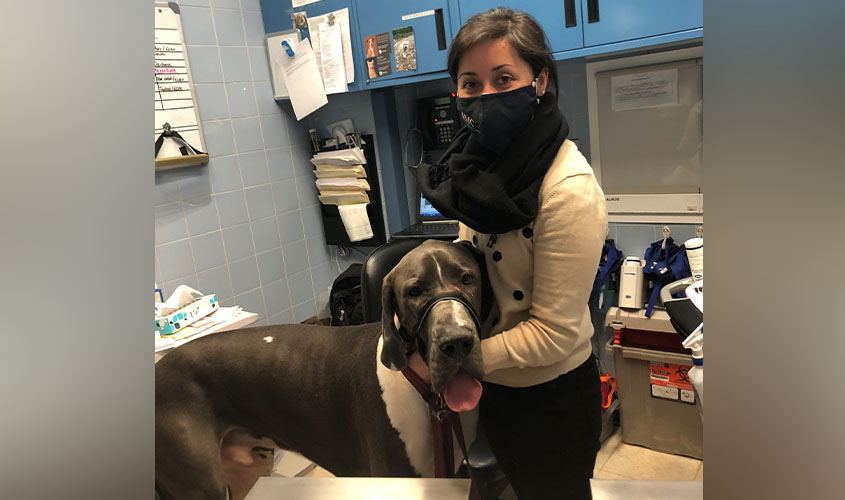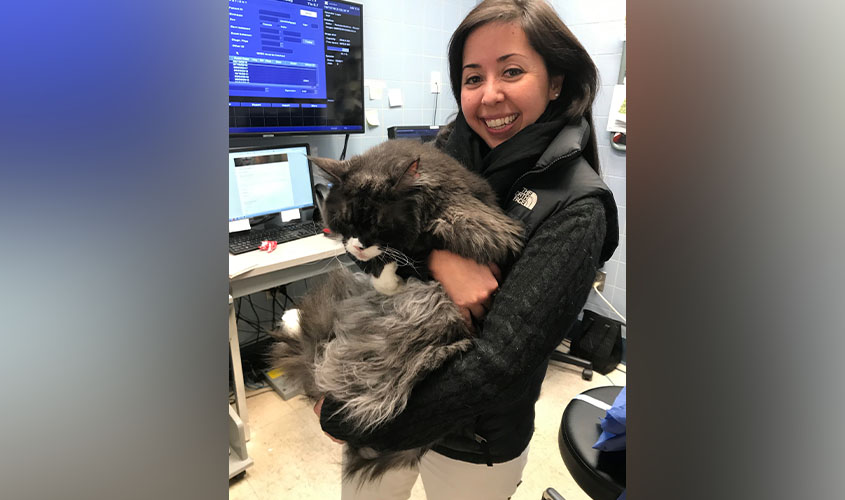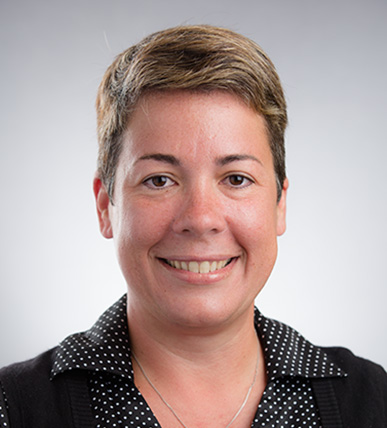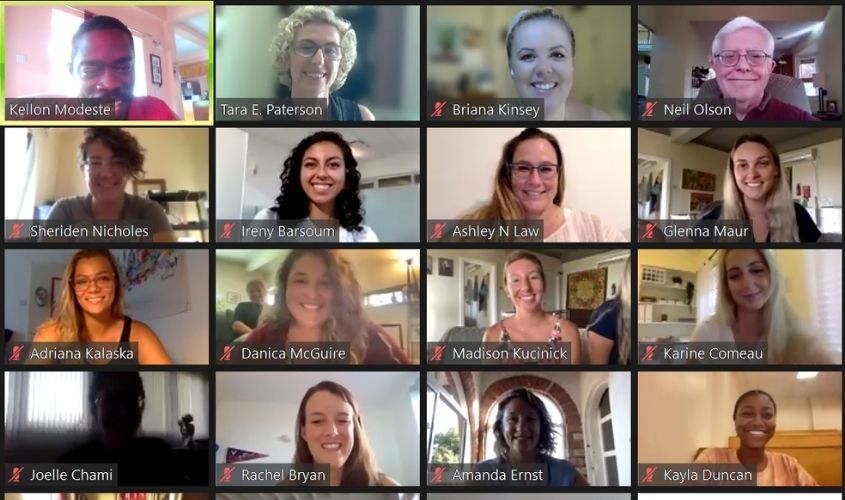
The School of Veterinary Medicine hosted its bi-annual SVM Awards Ceremony honoring students, faculty, and staff for their outstanding achievements during the fall term. Twenty-four different sets of awards were presented during the virtual event, to students who demonstrated exceptional academic achievement, professionalism, and work ethic as well as to faculty and staff who demonstrated remarkable service and commitment to veterinary education.
“It’s such an important aspect of the School of Veterinary Medicine to honor the very special achievements of students, faculty, and staff,” said Dr. Neil Olson, dean of the SVM. “With all of the challenges presented while learning during the current global pandemic, what better way to lift the spirits than to acknowledge the efforts and sacrifices they’ve made to make this program and our students successful.”
In addition to Dean Olson, Dr. Glen Jacobs, provost of SGU also addressed the online crowd. He shared his heartfelt congratulations to all the winners and expressed his hope to attend the next award ceremony in person. “This is our fourth virtual awards ceremony, but I cannot wait for it to be held face-to-face in Grenada and we can all celebrate together again.”
The ceremony also recognized 24 new inductees into the Alpha Delta Chapter of the Phi Zeta Honor Society—11 from Term 5, 13 from Term 6, and three faculty members. Seven students were awarded Dean Olson’s Award for Academic Excellence, which is given to Term 3 students with the highest GPA (as of the end of Term 2) and who embody professionalism.
“It’s such a joy and pleasure to bring everyone together to celebrate excellence amongst our faculty, staff, and students,” said Dr. Anne Marie Corrigan, associate dean of academics, during her closing remarks. “It truly shows the passion and love for what we do on a daily basis in veterinary medicine and that you’ve worked so hard to be successful.”
SGU Island Veterinary Scholars Program (Boehringer Ingelheim)
Allison Kearney, Adrian Jones
Outstanding Colleague Awards
Term 1: Miller Young
Term 2: Giana Gigantino
Term 3: Molly Ginn
Term 4: Leandra Margolies
Term 5: Sheriden Nicholes
Term 6: Brittney Kilgore, Adriana Kalaska, Marc Bremmer
Dean Olson’s Award for Academic Excellence
Selina Nackley, Amanda Ernst, Natalie Hollo, Anca Gagliardo, Logan Bernstein, Adrian Jones, Maureen Kruhlak
Adrienne Lotton Memorial Award
Brian Greene
Zoetis Awards
Zoetis Award for Research Excellence: Daniel Fitzpatrick
Zoetis Revolution Awards of Excellence
Small Animal Internal Medicine: Gemma Carter
Small Animal Surgery: Adriana Kalaska
Equine Medicine and Surgery: Ashley Law
Food Animal Medicine and Surgery: Tiara Key
Scholarship of Service Award: Yvonne White
Student Research Award: Madison Kucinick
SVM Alumni Scholarship award: Maggie Macpherson
Giant Paws Giant Hearts Foundation “Hercules” Award
Matthew Pickens
PAWS Recognition for Term 6 Facilitators
Maggie Macpherson, Erika Brewer, Gemma Carter, Marc Bremmer, Priyanka Mehta, Luca Mak, Thomas Conley, Corinne Ross, Jessie Whitfield, Louis Carusillo, Colleen Courtney, Vianca Hernandez
Veterinary Public Health Committee
One Health One Medicine Community Leader Award: Ashley Wyman
Student Organization Awards
The Feral Cat Project
Most Valuable Trapper: Elizabeth Peck
Most Valuable Faculty/Staff: Imika Pascal
SGUSVM Large Animal Society
Most Valuable LAS Member Award: Bianca Mower
SVM Wellness Committee
Wellness MVP Award: Dr. Adria Rodriguez
AAARF: Angels in Armor Animal Rescue Fund
Friends of AAARF Awards: Sarah Mikhail, Taryn Williamson
SCACVIM: Student Chapter of the American College of Veterinary Internal Medicine
Internal Medicine MVP Award: Bethany Sakowski
SVECCS: Student Chapter of the Emergency and Critical Care Society
Outstanding Member Award: Sisina Macchiarelli
Outstanding Clinician Award: Dr. Flavia Restitutti
SNP: Spay Neuter Pothound
Pothound Student Hero Award: Lauren Abrams
Pothound Faculty/Staff Hero Award: Quacy Matthew
SCACVP: Student Chapter of the American College of Veterinary Pathologists
The MVP (Most Valuable Pathologist) Award: Taryn Paquet
EWS: Exotics and Wildlife Society
Most Valuable Primate Award: Brianna Jacobs
VBMA: Veterinary Business Management Association
Impact Award: Gemma Carter
The Pinckney Parasitology Award
Letty Bonilla
DES Recognition Awards
Brin Cerbone, Kisten Braccili, Cassandra Morales, Angelica Melara, Daniel Ingram, Courtney Kennedy
Alpha Delta Chapter of the Society of Phi Zeta
Fall 2021 Inductees
Term 5 Inductees
Ireny Barsoum, Natasha Brown, Rachel Bryan, Karli Collins, Alex Chang, Karine Comeau, Kayla Duncan, Chloe Eaton, Priscilla Leinberger, Glenna Maur, Lauren Pierce
Term 6 Inductees
Sarah Beckner, Remington Campbell, Joelle Chami, Iesha Clouden, Thomas Cronly, Sara Hyman, Jennifer Klapko, Ashley Law, Danica McGuire, Erin Rickey, Alyssa Ungemach, Jessie Whitfield, Bahareh Ziai
Phi Zeta Specialty Faculty Recognition for Their Work in Promoting Research and Scholarship
Veterinary faculty: Dr. Stacey Byers, Dr. Satesh Bidaisee
Honorary faculty: Ms. Elizabeth Peach
SGU SVM Outstanding Staff Awards
Technical staff: Keshia John
Administrative staff: Cindy Edwards
Hill’s Golden Apple Teaching Award
Dr. Stacey Byers
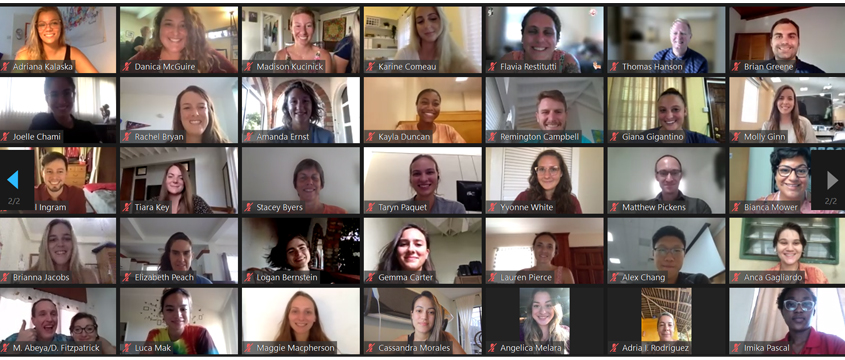
– Ray-Donna Peters
Related Reading
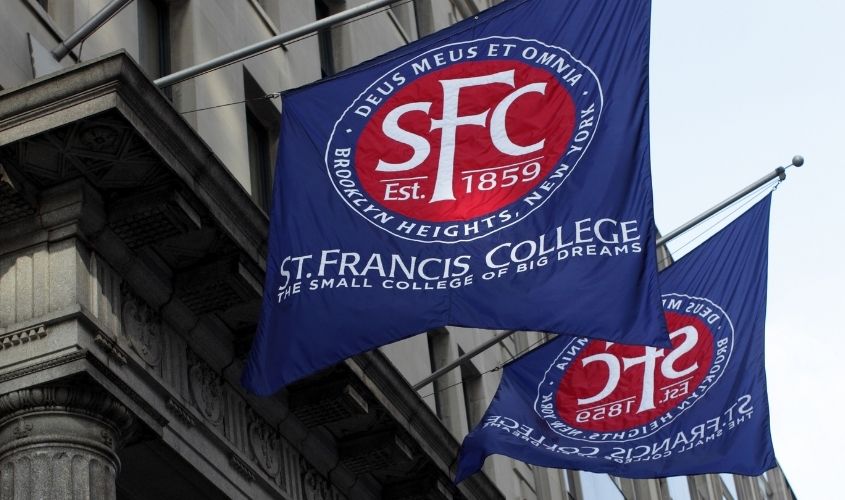
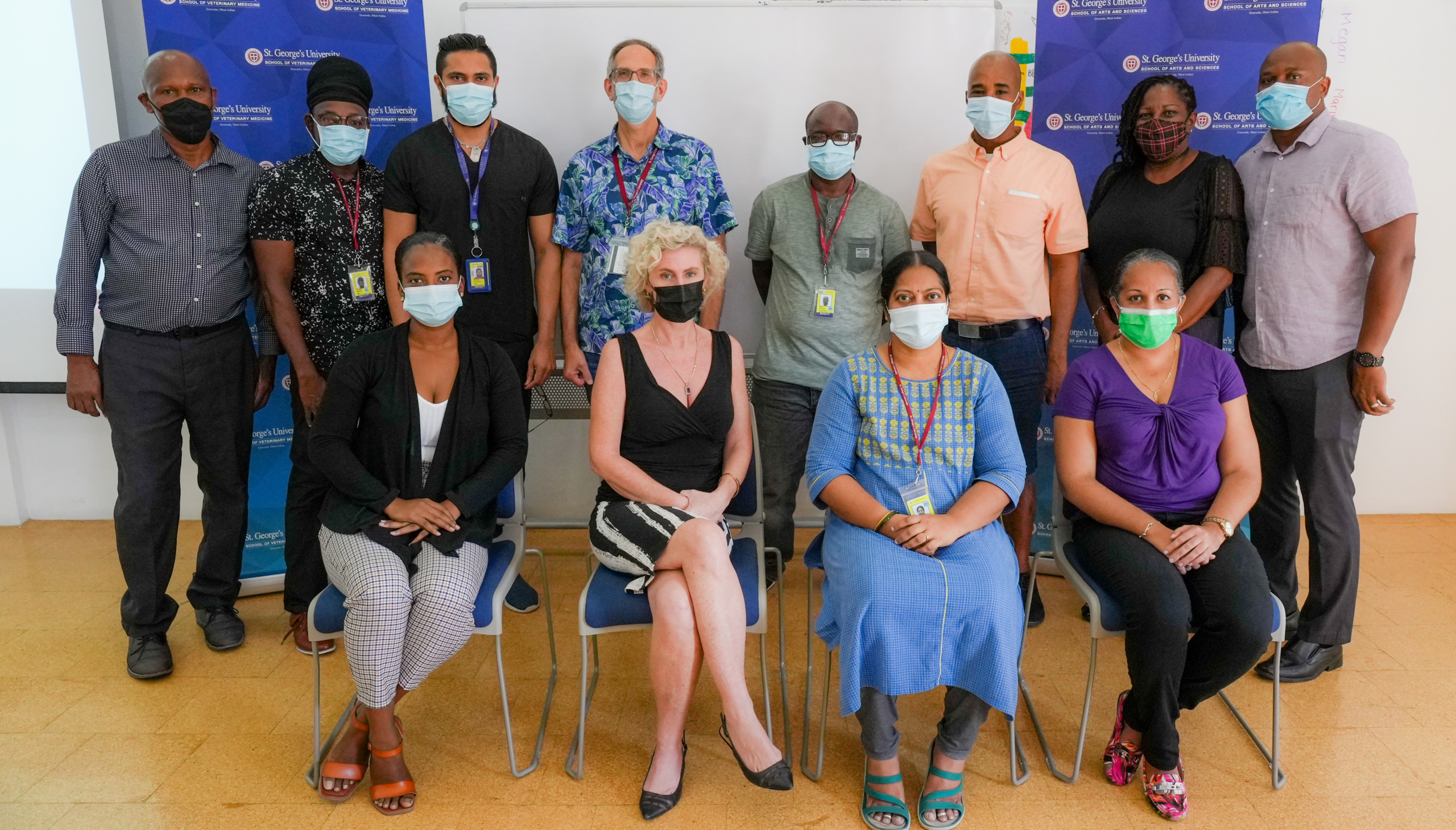


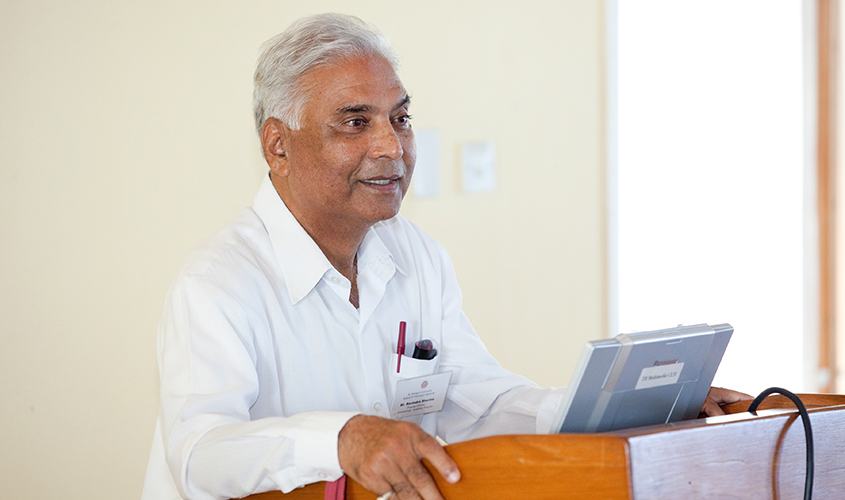
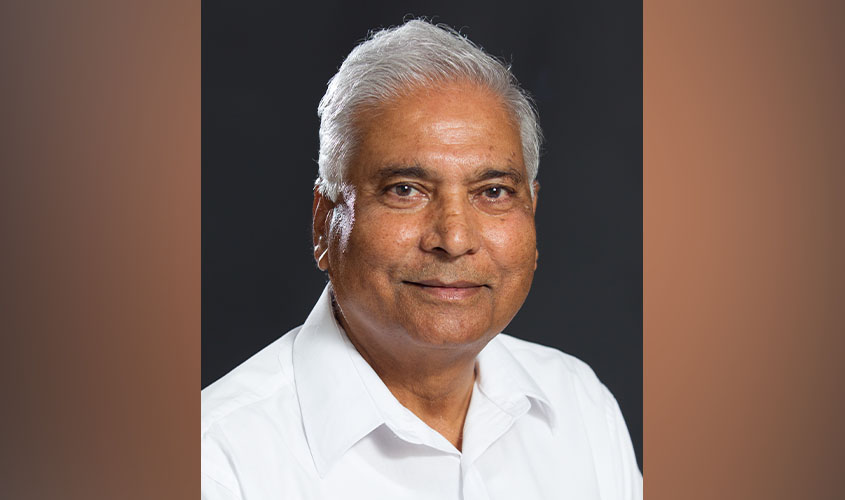
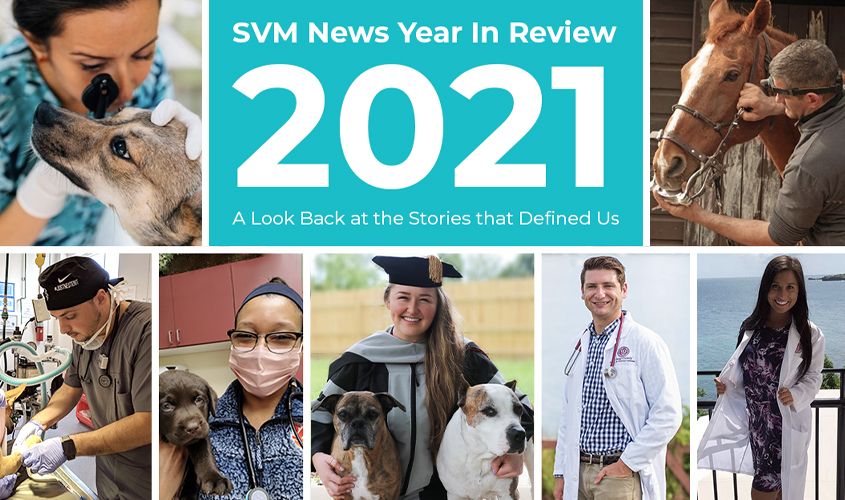
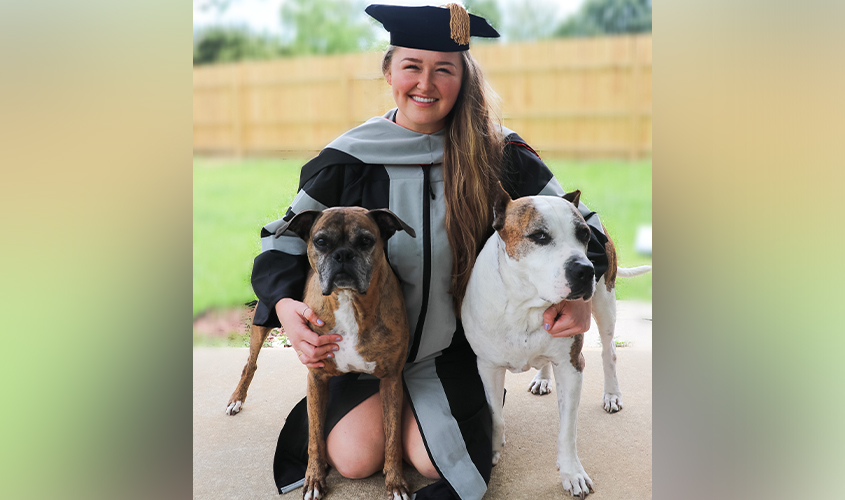
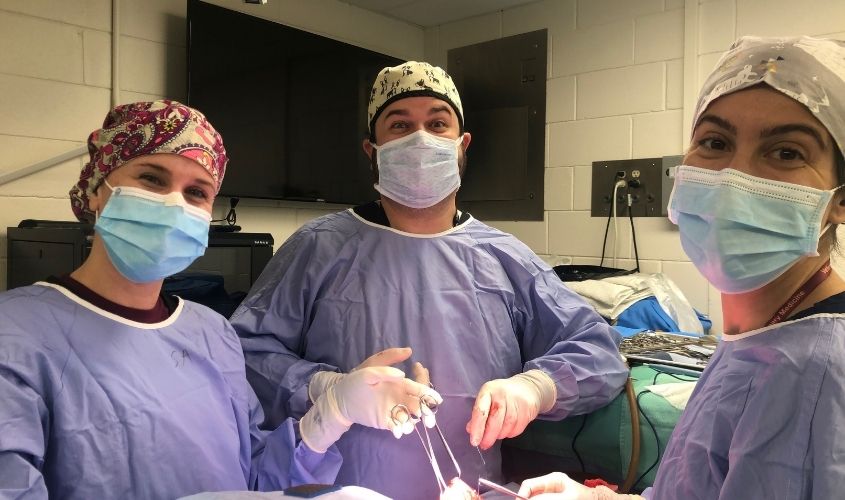
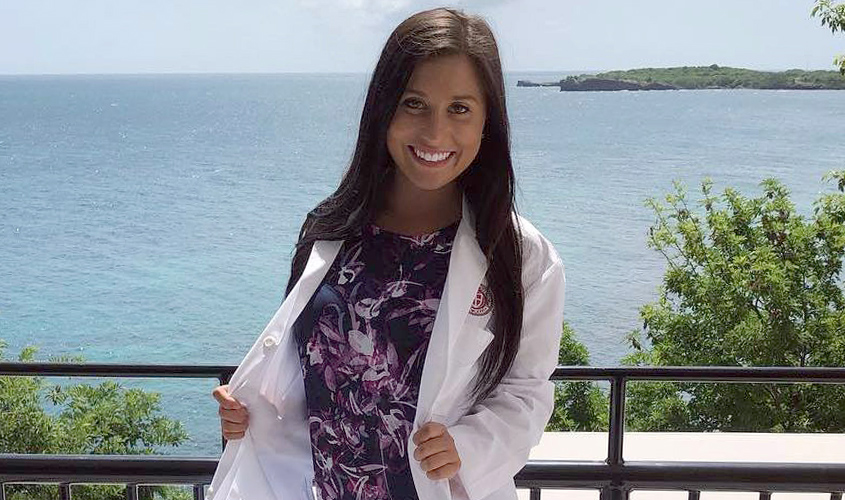
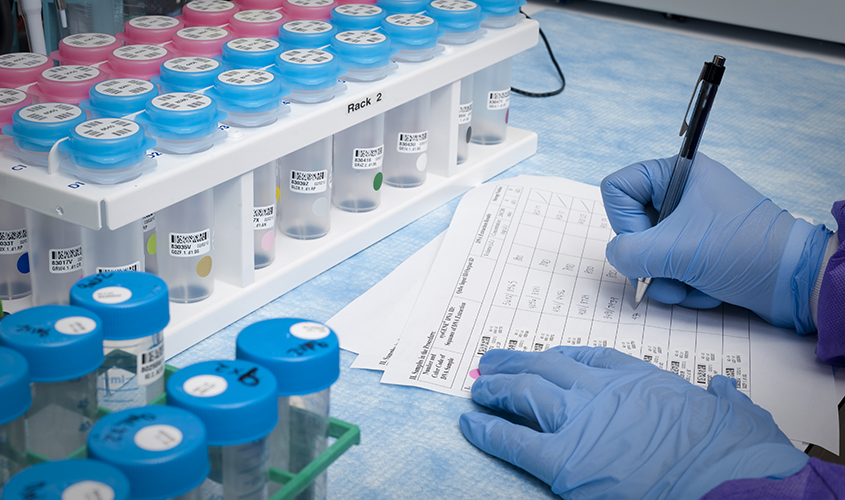

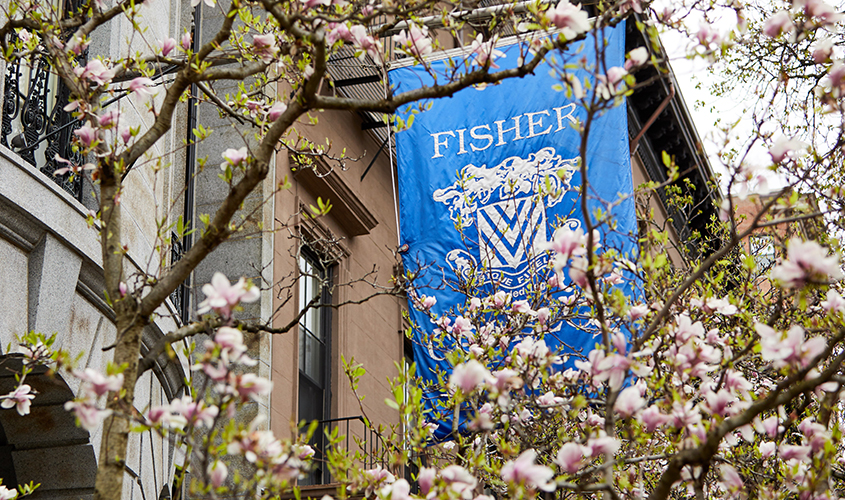 St. George’s University has announced a new direct admission partnership with Fisher College in Boston. The partnership establishes three pipelines for qualified Fisher College graduates to gain immediate entry to SGU’s Schools of
St. George’s University has announced a new direct admission partnership with Fisher College in Boston. The partnership establishes three pipelines for qualified Fisher College graduates to gain immediate entry to SGU’s Schools of 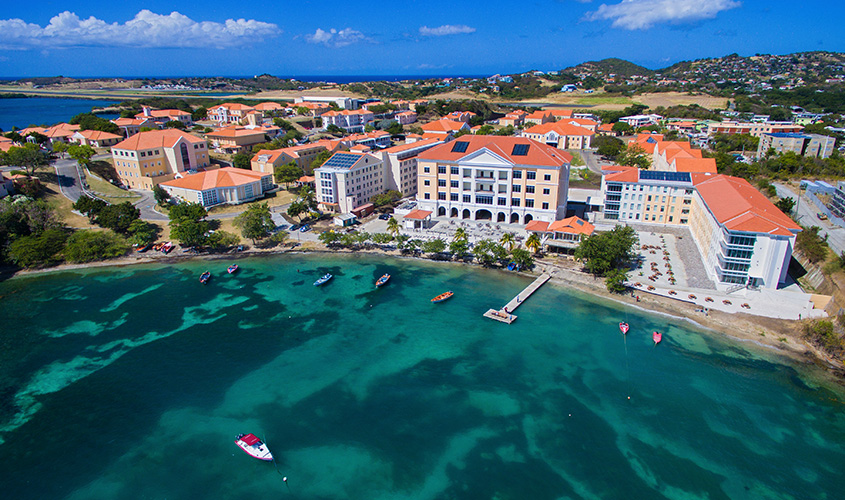
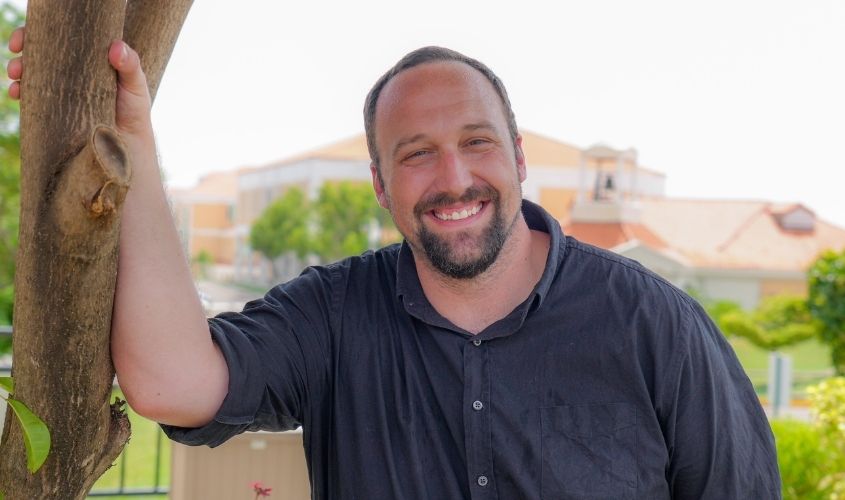
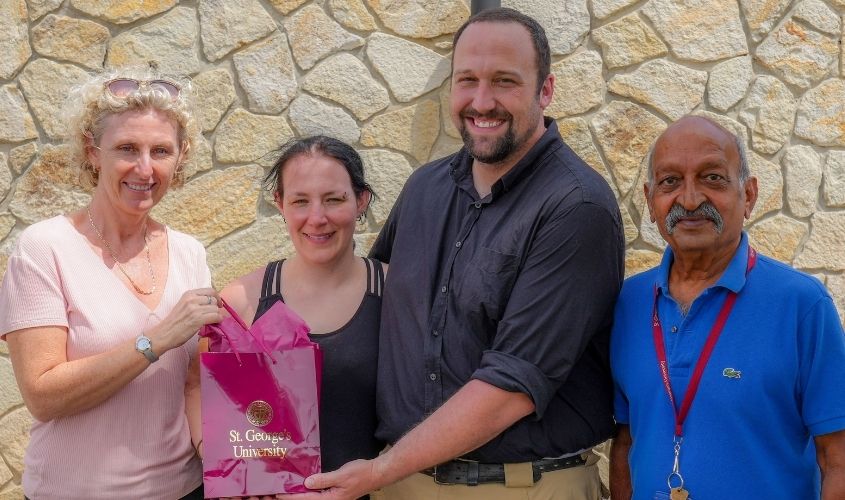
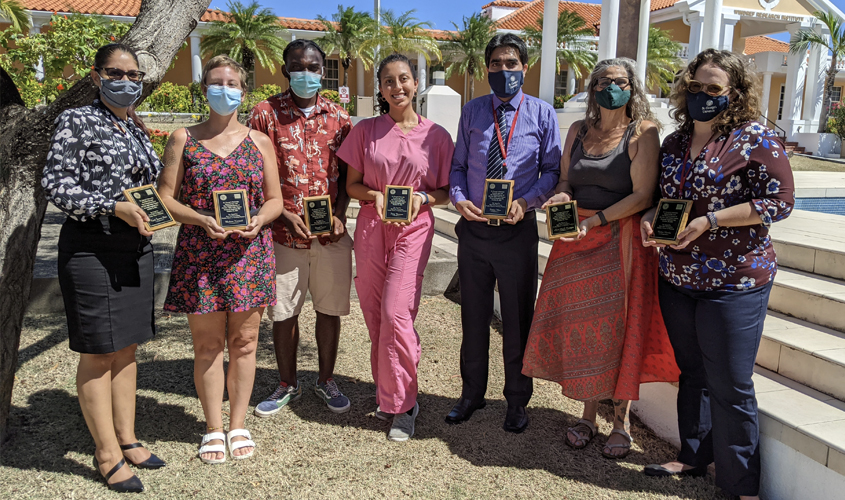 After a two-year hiatus since a
After a two-year hiatus since a 